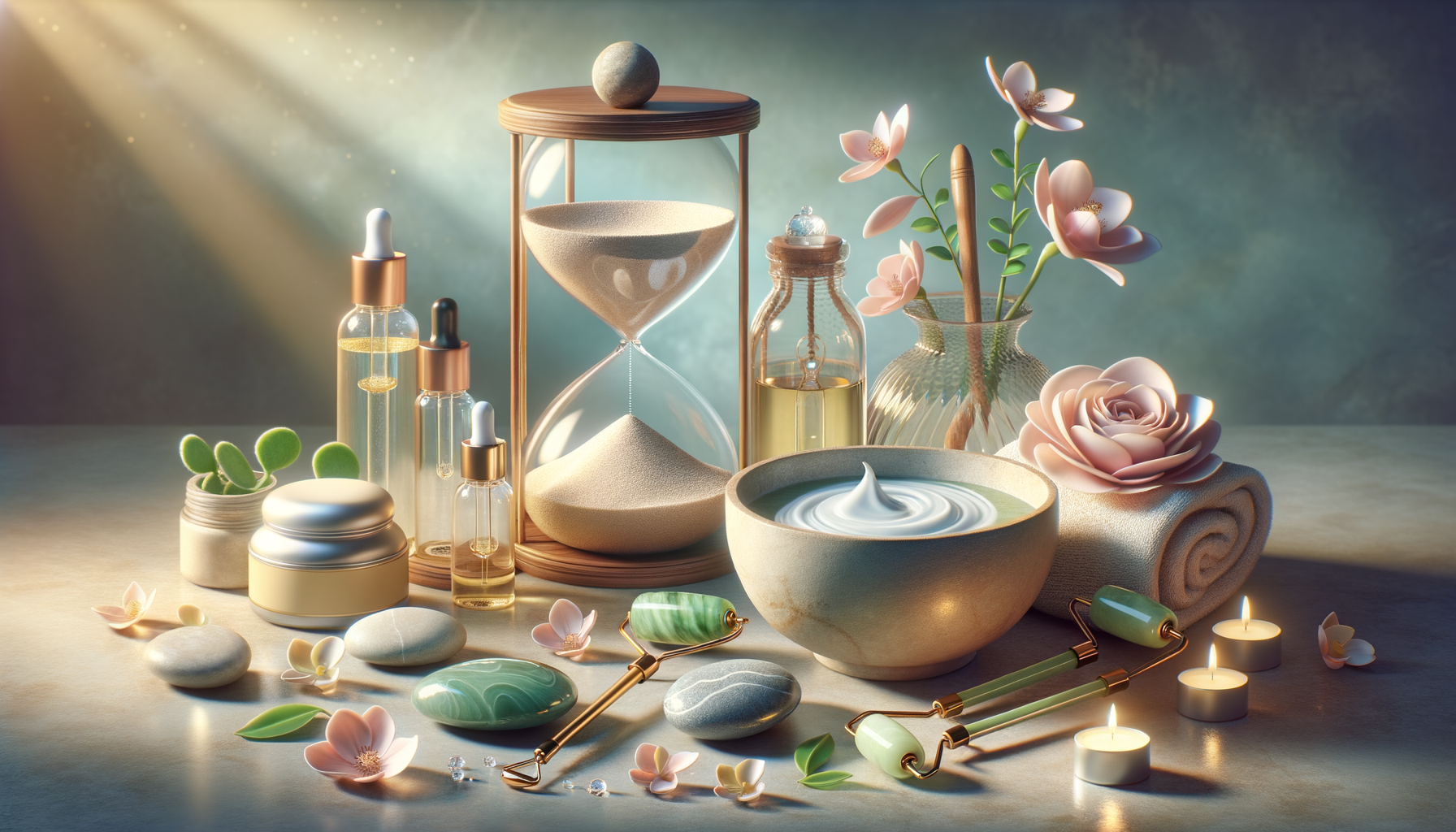The Science Behind Aging
Aging is a natural process that affects every individual, and understanding the science behind it can help us make informed decisions about skincare. As we age, our skin undergoes several changes, including a decrease in collagen production, reduced elasticity, and slower cell turnover. These changes lead to visible signs of aging such as wrinkles, fine lines, and sagging skin.
Collagen, a protein responsible for skin’s firmness and strength, diminishes over time. This reduction is exacerbated by factors like sun exposure, pollution, and lifestyle choices. Additionally, the skin’s ability to retain moisture decreases, leading to dryness and a dull appearance. While these changes are inevitable, understanding them allows us to target specific issues with appropriate skincare solutions.
Research has shown that certain ingredients can support the skin’s natural functions. For example, antioxidants like vitamin C and E can combat free radicals, which are molecules that accelerate aging. Retinoids, derived from vitamin A, are known for promoting collagen production and improving skin texture. By incorporating these scientifically-backed ingredients into your routine, you can effectively address the underlying causes of aging.
Gentle Ingredients for Anti-Aging
When it comes to anti-aging skincare, choosing gentle ingredients is crucial for maintaining skin health. Harsh chemicals can cause irritation and exacerbate signs of aging, so it’s essential to opt for products that are both effective and soothing.
Moisturizers play a vital role in keeping the skin hydrated and plump. Look for ingredients like hyaluronic acid, which can hold up to 1,000 times its weight in water, providing intense hydration. Ceramides, another key ingredient, help restore the skin’s barrier, preventing moisture loss and protecting against environmental stressors.
Serums are another excellent addition to an anti-aging routine, as they deliver concentrated active ingredients deep into the skin. Niacinamide, a form of vitamin B3, is known for its anti-inflammatory properties and ability to improve skin elasticity. Peptides, short chains of amino acids, can stimulate collagen production and reduce the appearance of fine lines.
Sunscreen is perhaps the most critical component of any anti-aging regimen. Protecting the skin from harmful UV rays prevents premature aging and reduces the risk of skin cancer. Opt for a broad-spectrum sunscreen with at least SPF 30, and apply it daily, regardless of the weather.
Building an Effective Skincare Routine
An effective skincare routine is the cornerstone of anti-aging efforts. It involves a series of steps that work together to cleanse, treat, and protect the skin, ensuring it remains healthy and youthful.
Start with a gentle cleanser to remove impurities without stripping the skin of its natural oils. Follow with a toner to balance the skin’s pH and prepare it for subsequent products. Applying a serum next allows active ingredients to penetrate deeply and address specific concerns like wrinkles or hyperpigmentation.
Moisturizing is a non-negotiable step, as it locks in hydration and supports the skin’s barrier function. Choose a moisturizer suited to your skin type, whether it be oily, dry, or combination. Don’t forget to apply sunscreen as the final step in your morning routine to protect against UV damage.
At night, consider incorporating a retinoid into your routine to boost collagen production and enhance cell turnover. Exfoliation, done 1-2 times a week, can also help remove dead skin cells and promote a smoother complexion. Consistency is key; stick to your routine and adjust products as needed to see long-term results.
Lifestyle Factors and Aging
While skincare products are essential, lifestyle factors also play a significant role in the aging process. A holistic approach that combines both skincare and healthy habits can yield the most effective results.
Diet is a crucial component of skin health. Consuming a balanced diet rich in antioxidants, vitamins, and minerals supports the body’s natural processes and can slow the signs of aging. Foods like berries, nuts, and leafy greens are excellent sources of nutrients that promote skin vitality.
Hydration is another key factor. Drinking adequate water helps maintain skin’s elasticity and flushes out toxins. Aim for at least eight glasses of water a day to keep your skin looking fresh and supple.
Exercise boosts circulation, delivering oxygen and nutrients to the skin, which promotes a healthy glow. Regular physical activity also reduces stress, which can have a positive impact on skin health. Consider incorporating activities like yoga or meditation to manage stress effectively.
Finally, getting enough sleep is vital for skin regeneration. During sleep, the body repairs itself, and lack of rest can lead to dull skin and the formation of dark circles. Aim for 7-9 hours of quality sleep each night to support your skin’s natural rejuvenation processes.
Debunking Anti-Aging Myths
The world of anti-aging is rife with myths and misconceptions that can lead to confusion and ineffective skincare practices. It’s important to separate fact from fiction to make informed choices about your skincare routine.
One common myth is that anti-aging products are only for mature skin. In reality, starting a skincare routine with anti-aging benefits in your 20s or 30s can help prevent the early onset of wrinkles and fine lines. Prevention is more effective than trying to reverse damage later on.
Another misconception is that expensive products are automatically more effective. While some high-end products contain advanced formulations, many affordable options offer similar benefits. The key is to look for products with proven ingredients rather than focusing solely on price.
Some believe that natural ingredients are always better for anti-aging. While natural products can be beneficial, not all are suitable for every skin type, and some may cause irritation. It’s essential to patch-test new products and consult with a dermatologist if you’re unsure.
Finally, many people think that once you start using anti-aging products, you can’t stop. While consistency is important, you can adjust your routine as your skin’s needs change. The goal is to maintain healthy skin, not to rely on products indefinitely.
By understanding these myths and focusing on science-backed practices, you can create a skincare routine that effectively supports your skin’s health and vitality.




Leave a Reply